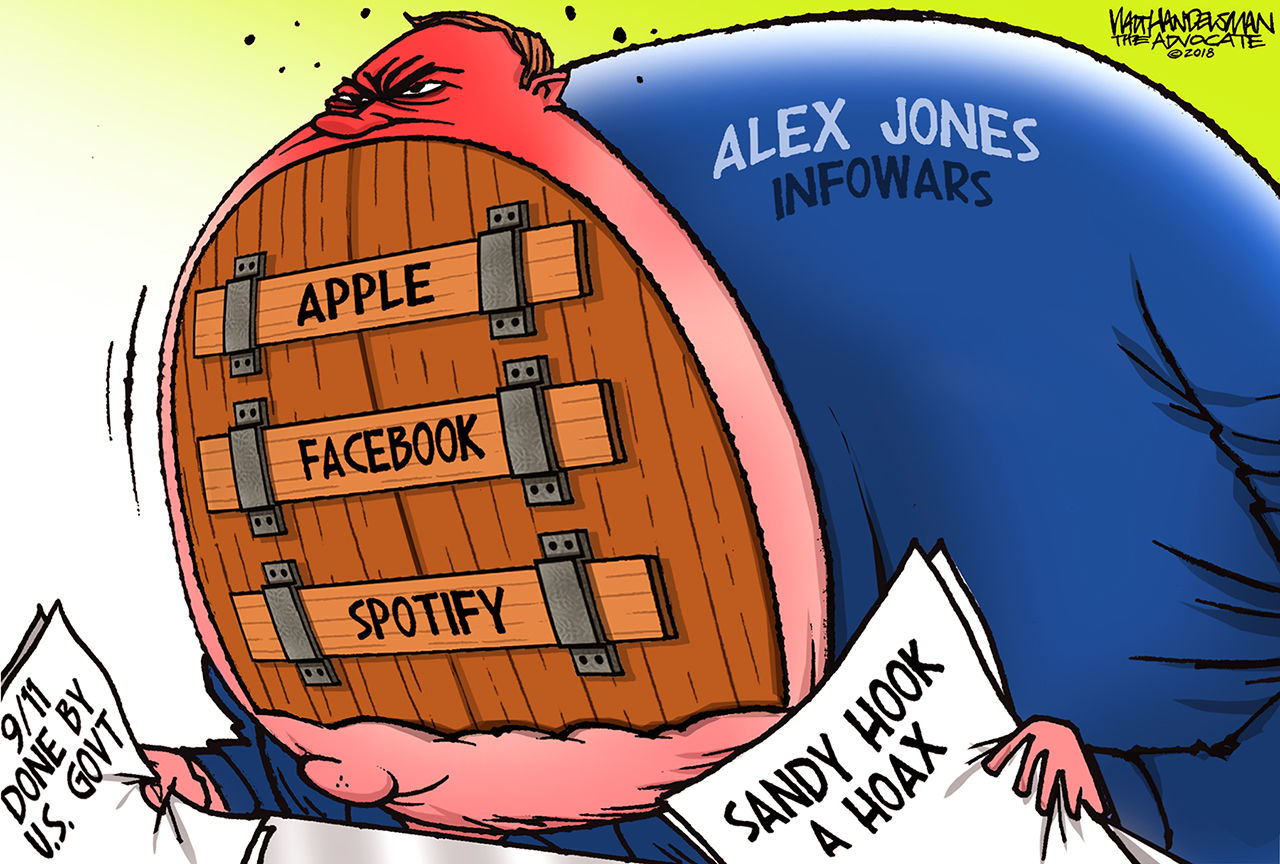
The behemoths of the internet have shunned
While I have no love for Jones, the reasons offered by YouTube, Apple and other platforms for dropping his show leave a bit to be desired. The ostensible rationale for exiling Jones, who famously accused the victims of the Sandy Hook mass shooting of being "crisis actors," is that he spews "hate speech."
Hence the debate on the right. Much of the left has already made peace with the idea that some voices it doesn't like -- on campus, on the internet, in the mainstream media -- should be silenced. The well-founded fear on the right is that Jones could be just the beginning.
Dropping Jones isn't the problem. Using hate speech as the excuse is -- because the definition of hate speech is often simply any speech the left hates. That these private corporations seemed to coordinate with each other offers a glimpse of a future in which Big Internet silences dissident voices from the right.
Both supporters and critics of the decision understand that concern. Some argue that Jones is a fairly unique case. As
Griswold's colleague,
Meanwhile, my
I like this proposal quite a bit. It would still be an editorial standard. YouTube,
But I have an additional suggestion: Stop pushing all of the decisions upward. These problems start with us.
In "Crisis of Responsibility," author
The banks gave bad loans because the government took too much responsibility for the irresponsibility of both creditor and lender alike. At every level from the ground up, people made bad decisions or watched people make bad decisions and said nothing.
The same thing is at work in the realms of journalism, politics and infotainment. Viewers (i.e., citizens) are all too eager to indulge dumb, nasty, cruel or nutty demagogues because they find such fare entertaining or psychologically comforting. Editors and television producers, hungry for clicks and eyeballs, are only too happy to invite people into their pages or onto their sets if they might bring those eyeballs and clicks with them.
Politically, we live in a popular-front moment, where no one on "our side" is worth criticizing too much, if at all, and everyone on "their side" is evil. This has as much to do with ratings and page views as it does with ideology. Moths chase light, but the incentive for politicians, producers and pundits is to follow the heat.
I'm still torn over how people such as
Jonah Goldberg is a fellow at the American Enterprise Institute and editor-at-large of National Review Online.


 Contact The Editor
Contact The Editor
 Articles By This Author
Articles By This Author